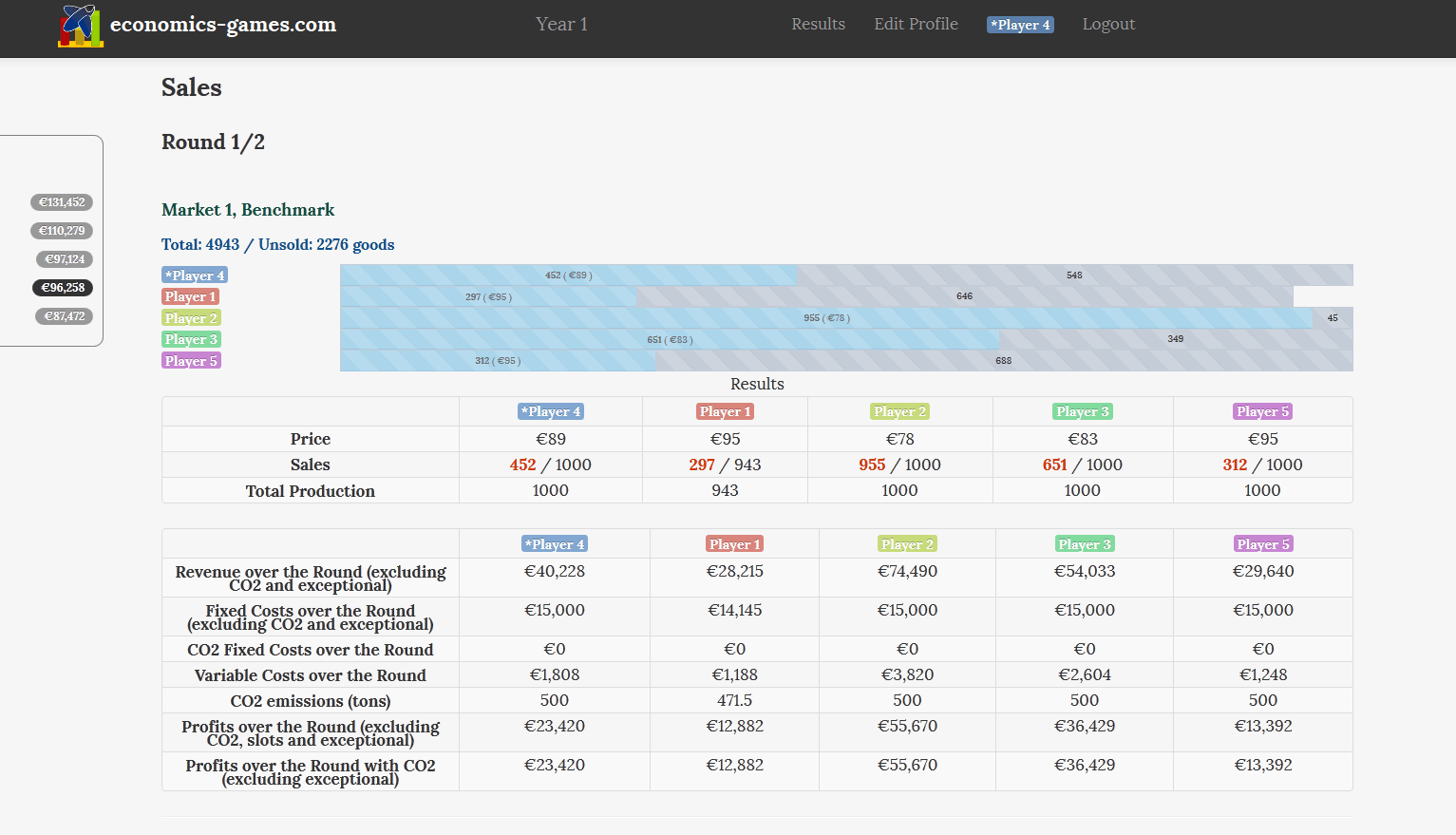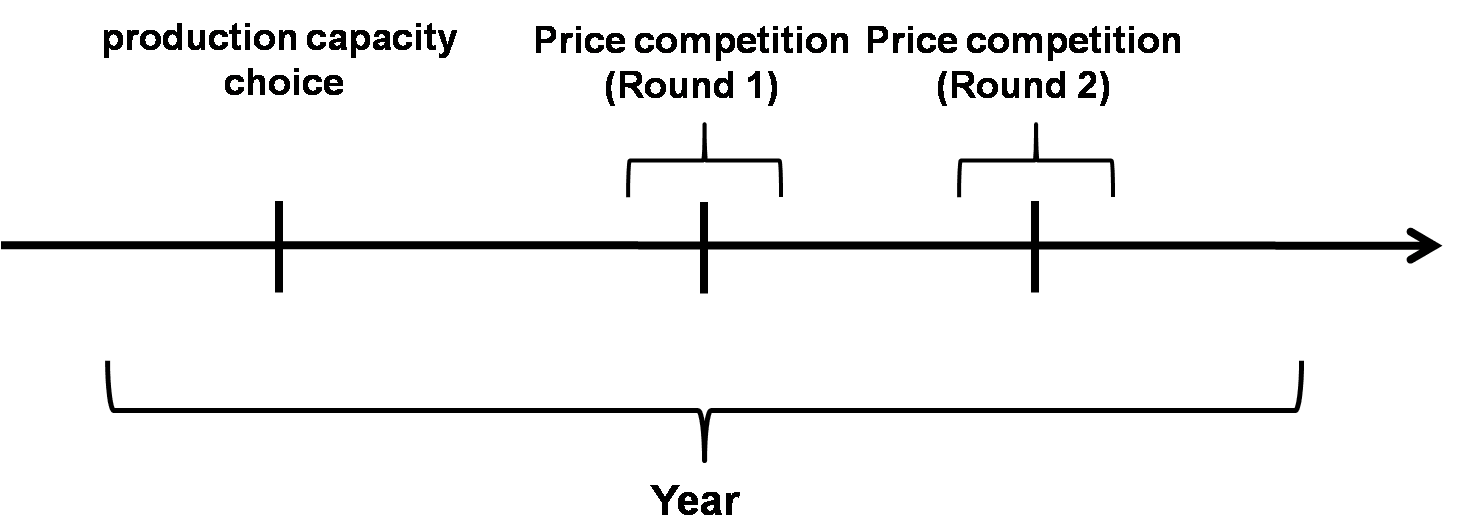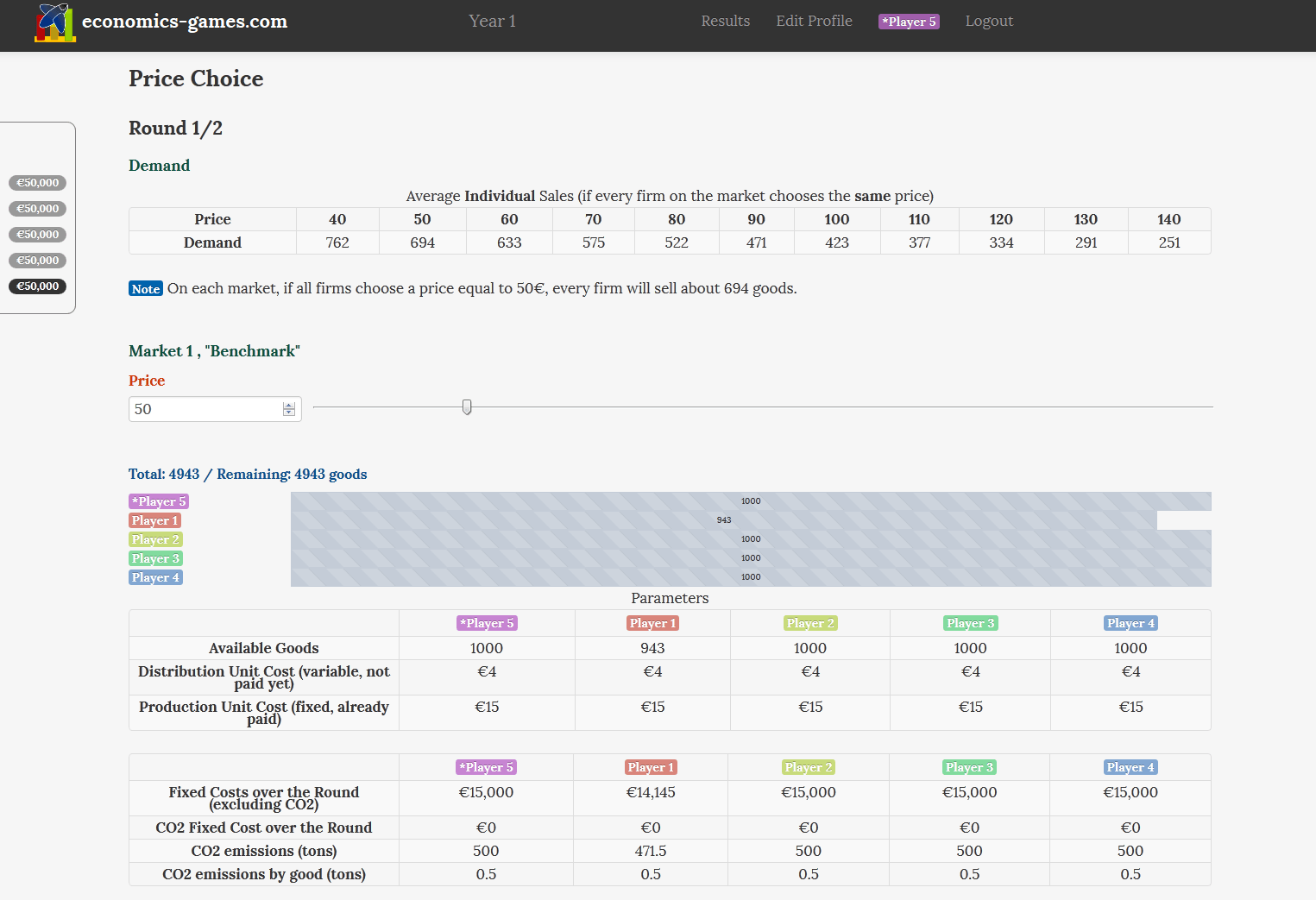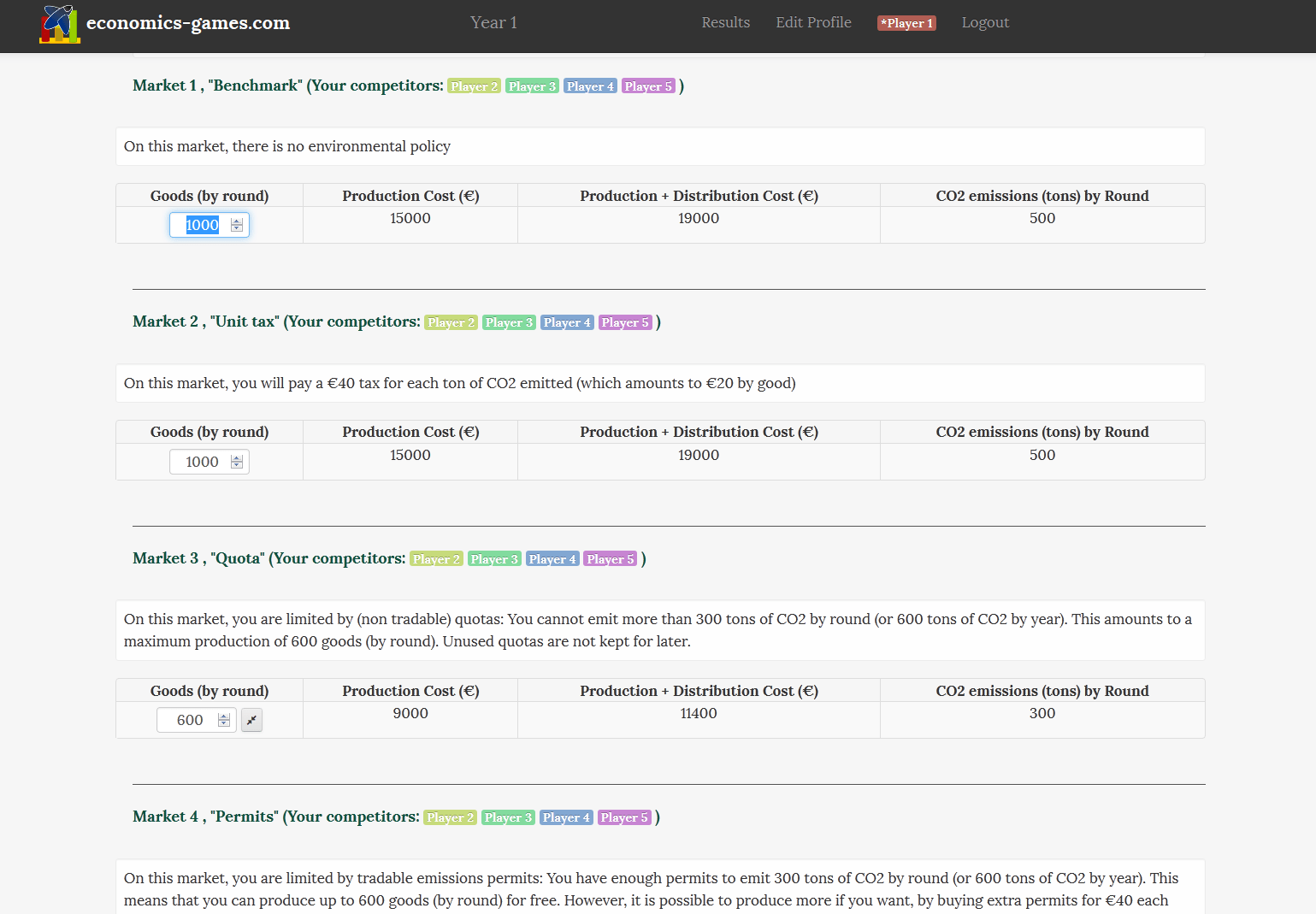Market game with CO2 environmental policies
This game lets you apply many important microeconomics concepts. By adapting your debriefings, you can use it both as an introduction to microeconomics or environmental economics or as a course illustration for more advanced students.

Rules as explained to players:

- You are responsible for managing a firm selling a good whose production emits CO2. You will play the same game against the same players on 4 completely separate markets: Actions on one market do not have any direct impact on other markets. You can see these markets as parallel universes in which demand and production costs are the same, but environmental policies are different (one market is a benchmark market, on the second there is a unit CO2 tax, on the third you must respect a quota on emissions, and on the fourth you can buy or sell tradable emission permits. This will be detailed on the production page). Note in particular, that goods produced on one market cannot be sold on other markets.
- The timeline is separated into years. At beginning of the year, you have to choose how much to produce. Then, once every firm has decided how much to produce, production takes place and you have to choose the price at which you will sell your goods.
- For pedagogic reasons and to allow you to correct potential pricing mistakes, you will play the "sales part" twice (but this does not correspond to any real-world situation). We call these two sales sequences: "rounds" (for each round, the maximum quantity you can sell is equal to the total quantity you selected at the production stage).
-
Demand on markets is proportional to the number of players and is the same as in the other market games from this site (but different from demand of similar games found on lud.io).
In particular,
- If every player charges a price equal to 50€, each player will sell about 694 goods.
- If every player charges a price equal to 40€, each player will sell about 762 goods.
- Note that goods are perishable: what is not sold at the end of a round is lost.
- Finally, your shareholders only leave enough cash in your firm to let you produce a maximum of 1200 goods per round on each market (note that this does not mean that producing 1200 goods is a good idea!). This constraint applies market by market.
-
Your goal is to maximize your company's profit, not to beat your direct competitors, nor to sell the maximum number of goods (your final ranking will be determined by comparing your profits with those of every other players, some of which may compete in different "universes").
The game lasts three years.
| Price | 40 | 50 | 60 | 70 | 80 | 90 | 100 | 110 | 120 | 130 | 140 |
|---|---|---|---|---|---|---|---|---|---|---|---|
| Demand | 762 | 694 | 633 | 575 | 522 | 471 | 423 | 377 | 334 | 291 | 251 |
Game details:
The game lasts three years, the cost structure is the same on all markets and there is a different environmental policy on each market.

Technology on all markets
Each good produced will cost €15 and emit 0.5 tons of CO2, even if it is not sold. If it is sold, it will also cost an additional €4.
| Unit production cost | Unit distribution cost | CO2 emissions (tons) per good produced |
|---|---|---|
| €15 | €4 | 0.5 |
Environmental Policies
- Market 1 is a benchmark market, there is no environmental policy.
- On market 2, there is a CO2 emissions tax equal to €40 for each ton of emitted CO2 (that means each good produced costs an extra €20).
- On market 3, there are (non-tradable) quotas. A firm cannot emit more than 300 tons of CO2 by round (or 600 tons by year). Consequently it can not produce more than 600 goods by round
- Market 4 is regulated with CO2 emissions permits. Each year, each firm receives 600 permits for free (that is, 300 permits for each round). With a permit, a firm can emit one ton of CO2 at no cost. If a firm emits more CO2 than it has permits, it must buy permits at a price of €40 for each exceeding ton of CO2. If it emits less CO2 than it has permits, it will be able to sell unused permits at a price of €40 each. (That means each firm can produce 600 goods by round with no need to buy and no possibility to resell permits. If it want to produce more, it needs to buy extra permits, which costs €20 by additional good. If it produces less, it can resell permits, which yields €20 for each good which is not produced.)
Note that for a €40 unit tax for each ton of CO2, producing 1000 goods costs €(15+0.5*40)*1000, i.e. €35000. If firms all decide to produce 1000 goods, they will find themselves in the same situation as in one of the markets of the first competition game of this site (Impact of fixed costs and capacity constraints on price and profit, with differentiated goods)

You can play this demo to get an idea of the game: Demo , and find the same information inside this document: Rules (pdf) .
Choose the number of players and the number of different universes: If there are 30 players and you choose 3 universes, the students will be randomly spread across 3 universes with 10 players: Players will be faced with the same 9 direct competitors on all 4 markets.
Having several universes ensures that players really have incentives to pay more attention to payoffs and less attention to their ranking inside their universe. Indeed, a player who is the first in an extremely competitive universe might end up with a bad overall ranking.
Note A few trial and error cycles are necessary to be able to define a sound strategy, so, for this game, it might be a good idea to invite your students to first run the monoplayer variant, as a monopoly (located at the top of the game creation page, 3rd in the monoplayer simulations list): Players will then be able to use the back button to compare different decisions.
For more information about demand or about how to use this game within a sequence of market games:
Your feedback and suggestions are important to improve our games, thank you to .

